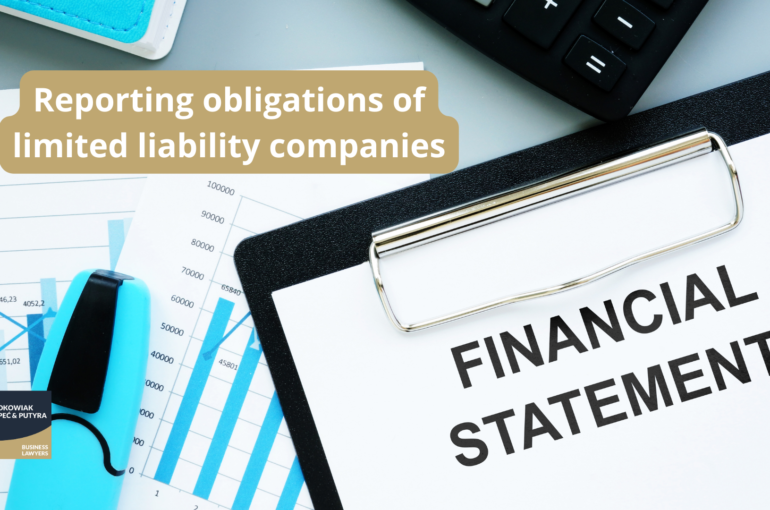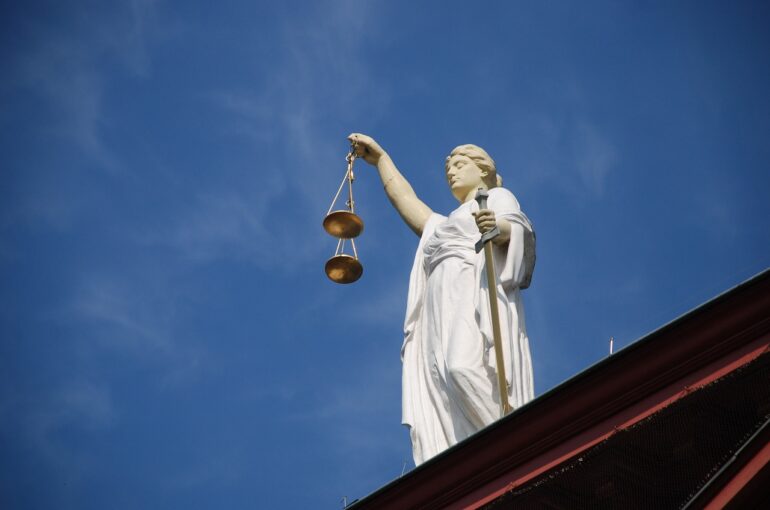New holding law in Poland
Amended holding law in Poland
On October 13, 2022, the amendment to the Commercial Companies Code, commonly known as the holding law, adopted by the Polish Parliament on February 9, 2022, will enter into force.
Activities of a group of companies
The Act introduces a new institution of a group of companies to the Polish legal system, which means a parent company and subsidiaries that are capital companies, performing a common strategy to implement a common interest (interest of a group of companies) according to the resolution on participation in a group of companies, which justify the exercise of by the parent company of uniform management of the subsidiaries.
The parent company and the subsidiary that participate in the group of companies are guided by the interests of the group of companies in addition to the interests of the company, as long as this does not harm the creditors or minority shareholders of the subsidiary.
The shareholders’ meeting of the subsidiary shall adopt a resolution on participation in a group of companies with a three-fourths majority of votes, indicating the parent company.
Registration of a group of companies
Participation in a group of companies by a parent company and a subsidiary is to be disclosed in the National Court Register by entering a note in the register.
A member of the management board, supervisory board, audit committee, commercial proxy and liquidator of a company participating in a group of companies may rely on an act or omission in the specific interest of the group of companies, if the company has disclosed participation in the group of companies.
Giving orders to a subsidiary
The parent company may issue a binding instruction to a subsidiary participating in a group of companies regarding the conduct of the company’s affairs if it is justified by the interests of the group of companies. The execution of a binding instruction by a subsidiary requires a prior resolution of the management board.
A subsidiary may adopt a resolution to refuse to carry out a binding instruction if:
- its execution would lead to the insolvency or threat of insolvency of the company,
- there is a justified concern that it is contrary to the interests of the company and will cause damage to it, which will not be repaired by the parent company or another subsidiary company participating in the group of companies within two years from the date on which the harmful event occurs.
The articles of association of a subsidiary may provide for additional grounds for refusing to carry out a binding instruction.
New rules of liability
Importantly, a member of the management board, supervisory board, audit committee and liquidator of a subsidiary is not liable for damage caused by the execution of a binding instruction. The abovementioned exemption from liability applies accordingly to a member of the management board, supervisory board, audit committee and liquidator of the parent company acting in the interest of the group of companies.
The parent company is liable for damage to a subsidiary caused by the execution of a binding instruction and which has not been repaired within the time limit indicated in the binding instruction, unless it is not at fault. The liability of the parent company is determined taking into account the duty of loyalty to the subsidiary when issuing and executing a binding instruction.
A parent company which, as at the date of issuing a binding instruction to a subsidiary company, has, directly or indirectly, a majority of votes enabling the adoption of a resolution on participation in a group of companies and amending the agreement or statute of the subsidiary, is liable for reducing the value of shares towards a shareholder of that company, if the reduction was a consequence of the execution of a binding instruction by a subsidiary.
If enforcement against a subsidiary participating in the group of companies proves ineffective, the parent company is liable for damage caused to the creditor of the subsidiary, unless it is not at fault or the damage was not caused by the subsidiary’s execution of a binding instruction.
Supervision over the activities of a group of companies
The parent company may at any time view the books and documents and request information from a subsidiary belonging to the group of companies.
The supervisory board of the parent company exercises permanent supervision over the implementation of the interests of the group of companies by the company or subsidiaries belonging to the group of companies.
The management board of a subsidiary participating in a group of companies prepares a report on contractual relations of this company with the parent company for the last financial year and presents it to the shareholders’ meeting.
Compulsory buyout of shares
A shareholder or minority shareholders representing no more than 10% of the share capital of a subsidiary participating in a group of companies may request that the agenda of the next meeting of shareholders of the matter of adopting a resolution on compulsory repurchase of their shares by the parent company, which represents directly, indirectly or on the basis of agreements with others persons at least 90% of the share capital of a subsidiary participating in the group of companies. Until the payment of the entire repurchase amount, the shareholder or minority shareholder retains all rights under the shares or stocks.
The shareholders’ meeting of a subsidiary may adopt a resolution on compulsory purchase of shares of shareholders representing no more than 10% of the share capital by the parent company that directly represents at least 90% of the share capital, also on its own initiative.
The new holding law significantly changes the relations between the parent company and the subsidiary that are part of the group of companies, as well as changes the scope of rights and obligations of members of the company’s bodies and the rules of their liability. The implementation of new regulations as part of the company’s corporate governance may cause difficulties, so it is worth using the legal assistance of our law firm.


